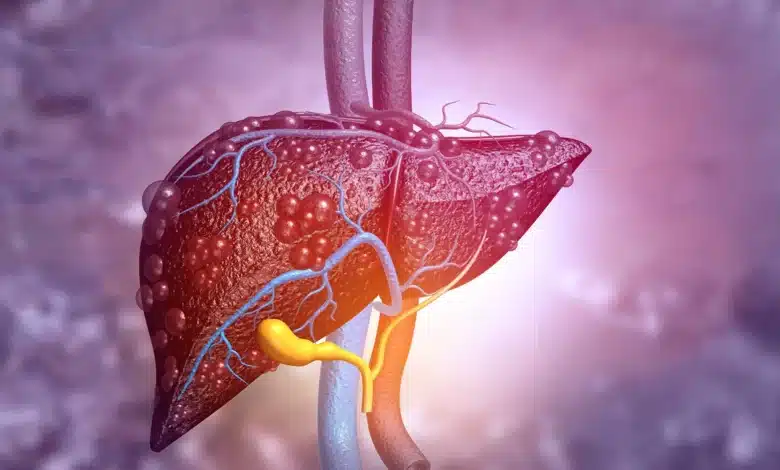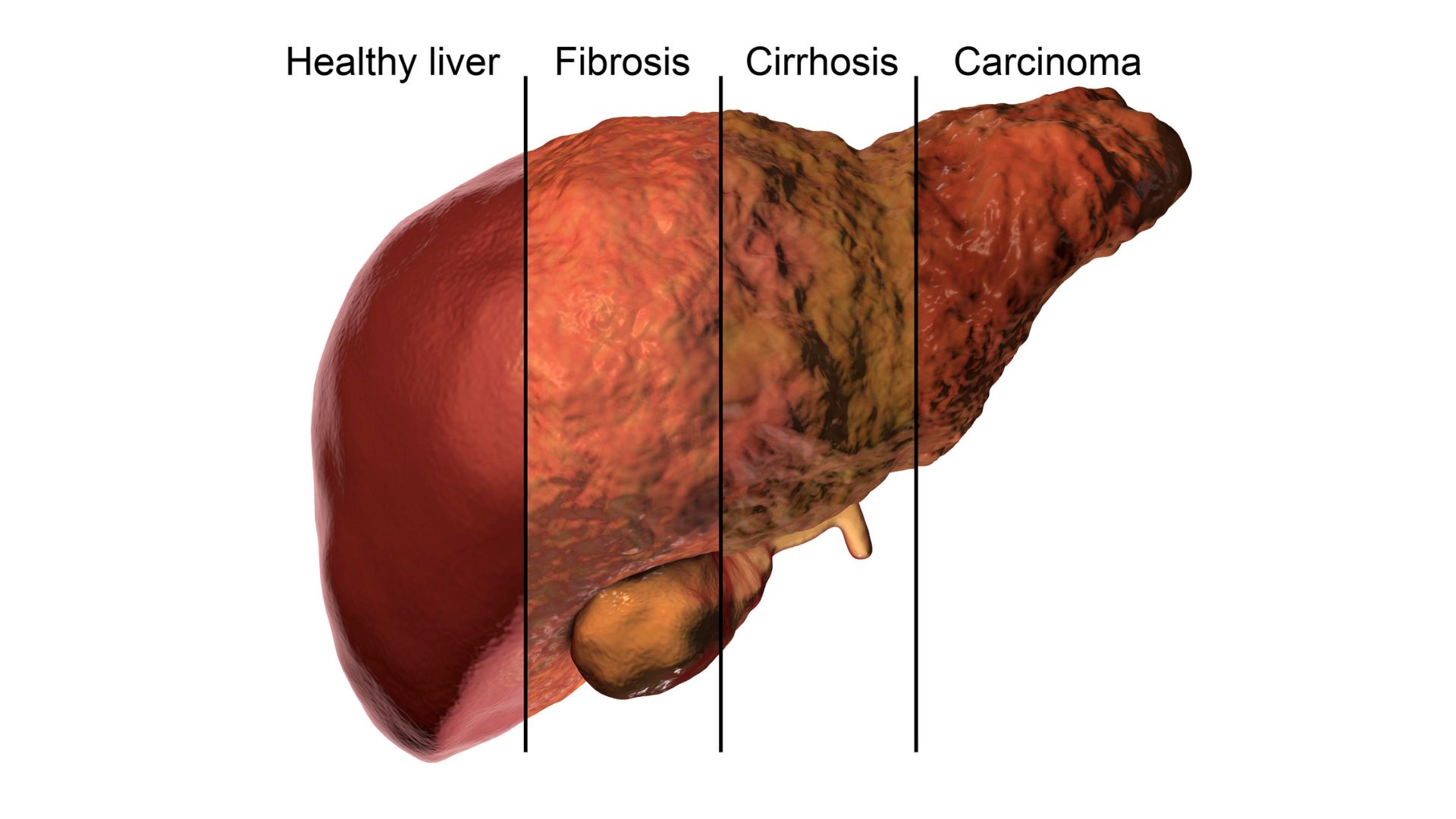7 Warning Signs of Liver Failure You Should Know

Introduction
Ever heard the saying, “You only have one liver, so treat it right”? It might sound like just another cliché, but it’s a crucial reminder of how essential liver health is to our overall well-being. This powerhouse organ does more than just sit quietly in the background; it plays a central role in keeping our body functioning smoothly. Liver failure can sneak up on you, often without obvious signs until it’s too late. That’s why understanding the warning signs of liver failure is so critical. In this post, we’re diving into the seven major warning signs that could indicate your liver is in trouble. So, buckle up, and let’s get informed!

Understanding Liver Failure
What is the Liver’s Role in the Body?
The liver is like the body’s all-purpose handyman, tirelessly performing over 500 vital functions. But what exactly does it do? Let’s break it down:
Filtering Toxins and Metabolism
One of the liver’s primary roles is to act as the body’s detox center. It filters harmful substances from the blood, such as drugs and alcohol, and converts them into harmless by-products. The liver also plays a key part in metabolism, processing nutrients from our food into usable forms of energy, proteins, and fats. Without a functioning liver, our body’s detoxification and energy systems would collapse.
Producing Bile and Digestive Functions
Ever wondered why you need bile? It’s all thanks to the liver! Bile is a digestive juice that helps break down fats in the small intestine, making them easier to absorb. Without enough bile, the body would struggle to process fatty foods, leading to digestive issues.
What is Liver Failure?
Liver failure occurs when the liver loses the ability to function properly. This can happen suddenly, known as acute liver failure, or gradually over time, called chronic liver failure. Both types can be life-threatening if not treated promptly.
Acute vs. Chronic Liver Failure
- Acute Liver Failure: This type develops quickly, often in a matter of days or weeks. Causes include drug overdoses, such as from acetaminophen, and viral infections.
- Chronic Liver Failure: Unlike acute, chronic liver failure happens over months or years. It’s usually the result of long-term liver diseases like cirrhosis or hepatitis.
Causes of Liver Failure
Liver failure can be triggered by various factors, including excessive alcohol consumption, chronic viral hepatitis, obesity, and exposure to toxic substances. Understanding these causes can help in both prevention and early detection.
7 Warning Signs of Liver Failure
Recognizing the early warning signs of liver failure can mean the difference between successful treatment and severe complications. Here are seven signs to watch out for:
Jaundice: The Yellow Flag

Jaundice is perhaps the most well-known sign of liver problems, characterized by a yellowing of the skin and eyes.
What Causes Jaundice?
Jaundice occurs when there’s an accumulation of bilirubin, a yellow pigment that’s produced during the breakdown of red blood cells. Normally, the liver processes bilirubin, but if it’s failing, bilirubin builds up and causes the yellow color.
Symptoms to Look Out For
Aside from yellowing of the skin and eyes, jaundice can cause dark urine and pale stools. It might also be accompanied by itching, as the body tries to get rid of excess bilirubin through the skin.
Abdominal Pain and Swelling
Experiencing pain or swelling in the abdomen? It could be a sign that your liver is struggling.
Why Does This Happen?
As the liver becomes damaged, it can lead to inflammation and enlargement, causing pain in the upper right side of the abdomen. Fluid may also accumulate in the abdominal cavity, a condition known as ascites, leading to noticeable swelling.
Recognizing the Symptoms
Look out for persistent pain in the upper right area of your abdomen, bloating, or a feeling of fullness. If these symptoms are accompanied by jaundice or other signs of liver issues, it’s time to see a doctor.
Chronic Fatigue and Weakness
Feeling unusually tired all the time? It could be more than just a lack of sleep.
Connection Between Liver Health and Energy Levels
The liver plays a critical role in energy production. When it’s not functioning correctly, toxins accumulate, leading to feelings of chronic fatigue and weakness. Your body simply doesn’t have the energy it needs to keep going.
When is Fatigue a Concern?
Everyone feels tired now and then, but persistent fatigue that doesn’t improve with rest should raise a red flag. If you find yourself constantly exhausted, unable to focus, or feeling weak, it’s worth investigating further.
Dark Urine and Pale Stool
Changes in urine and stool color can provide significant clues about liver health.
How Liver Health Affects Waste Products
When the liver isn’t functioning well, it can’t properly process bile. This leads to dark, tea-colored urine and pale, clay-colored stools. These changes happen because bile production and excretion are disrupted, causing bilirubin to be excreted through the urine instead of the intestines.
Other Conditions That Cause Similar Symptoms
Keep in mind that changes in urine and stool color can also result from dehydration, certain medications, or dietary changes. However, if these changes persist, especially alongside other liver failure symptoms, medical advice should be sought.
Nausea and Vomiting
While not specific to liver issues, persistent nausea and vomiting are common symptoms.
Understanding Digestive Disruption
The liver helps process nutrients and detoxifies substances. When it’s not working right, toxins build up, affecting the digestive system and leading to feelings of nausea and vomiting.
Differentiating Between Normal and Alarming Nausea
Occasional nausea can be due to a variety of factors, such as eating something that doesn’t agree with you. However, persistent or recurring nausea and vomiting, especially when accompanied by other symptoms like jaundice or abdominal pain, may indicate liver trouble.
Easy Bruising and Bleeding
Noticing more bruises than usual? It could be a sign of liver issues.
Why Does This Happen?
The liver produces proteins necessary for blood clotting. When it’s not functioning properly, these proteins decrease, making bruising and bleeding more common. Even minor bumps can cause significant bruising, and you might notice that cuts take longer to stop bleeding.
Impact on Blood Clotting Mechanisms
A damaged liver can’t produce enough clotting factors, leading to excessive bleeding even from minor injuries. This condition can become dangerous if not addressed promptly.
Mental Confusion and Cognitive Issues
Your brain can also signal liver problems.
Hepatic Encephalopathy: When the Brain is Affected
When the liver fails to filter toxins from the blood, these toxins can reach the brain, leading to a condition known as hepatic encephalopathy. This can cause confusion, forgetfulness, and even changes in personality.
Identifying Cognitive Decline
Symptoms might start subtly with mild confusion or forgetfulness but can progress to severe disorientation, drowsiness, and even coma in extreme cases. If you notice significant changes in mental clarity or behavior, it’s crucial to seek medical help.
Causes of Liver Failure
Understanding what leads to liver failure can help you avoid risky behaviors and take proactive steps toward liver health.
Alcohol and Substance Abuse
Alcohol is a major culprit when it comes to liver damage.
How Alcohol Affects the Liver
Long-term alcohol consumption can lead to fatty liver disease, alcoholic hepatitis, and cirrhosis. These conditions progressively damage liver cells, impairing the liver’s ability to function.
Other Substances to Be Aware Of
It’s not just alcohol; certain medications, recreational drugs, and exposure to toxic substances can also cause liver damage. Always use medications as prescribed and avoid illicit substances.
Viral Hepatitis
Viral hepatitis is another leading cause of liver disease and failure.
Types of Hepatitis
There are several types of viral hepatitis, including hepatitis A, B, and C. Hepatitis B and C are particularly concerning as they can lead to chronic liver disease and eventually liver failure.
How Hepatitis Leads to Liver Failure
Chronic hepatitis infections cause inflammation and scarring of the liver, which over time can lead to cirrhosis and liver failure. Early detection and treatment of hepatitis are crucial to prevent these outcomes.
Obesity and Non-Alcoholic Fatty Liver Disease (NAFLD)
Obesity isn’t just a concern for your heart; it affects your liver too.
The Growing Concern of NAFLD
Non-Alcoholic Fatty Liver Disease (NAFLD) is becoming increasingly common, especially with rising obesity rates. NAFLD occurs when fat accumulates in the liver without significant alcohol consumption, leading to inflammation and damage.
Lifestyle Factors that Contribute
A diet high in sugar, fats, and processed foods, along with a sedentary lifestyle, contributes to obesity and NAFLD. Adopting healthier eating habits and regular physical activity can significantly reduce your risk.
Genetic Disorders
Sometimes, liver problems are inherited.
Hemochromatosis and Wilson’s Disease
Genetic conditions like hemochromatosis, which causes iron overload, and Wilson’s disease, which leads to copper accumulation, can damage the liver. These conditions require early diagnosis and management to prevent liver failure.
Managing Genetic Risk Factors
If you have a family history of liver disease, it’s important to get regular check-ups and genetic testing. Early intervention can help manage these conditions and protect your liver health.
Prevention and Early Detection
Prevention is always better than cure, especially when it comes to liver health.
Regular Health Check-Ups
Regular check-ups can catch liver problems early when they are most treatable.
What to Ask Your Doctor
During your check-up, ask for liver function tests, especially if you have risk factors like a history of alcohol use, obesity, or family history of liver disease. Discuss any symptoms you’re experiencing, no matter how minor they seem.
Importance of Blood Tests
Blood tests can reveal elevated liver enzymes, indicating liver stress or damage. Early detection through blood tests can lead to interventions that prevent further damage.
Maintaining a Healthy Lifestyle
A healthy lifestyle goes a long way in supporting liver health.
Diet and Nutrition
Focus on a balanced diet rich in fruits, vegetables, lean proteins, and whole grains. Avoid excessive alcohol, reduce sugar intake, and limit consumption of processed foods. Foods high in antioxidants, like berries and nuts, can support liver health.
Exercise and Liver Health
Regular physical activity helps maintain a healthy weight, reduces fat accumulation in the liver, and improves overall metabolic health. Aim for at least 30 minutes of moderate exercise most days of the week.
Treatment Options for Liver Failure
If liver failure does occur, there are treatment options available.
Medications and Therapies
Medications can help manage symptoms and slow the progression of liver disease.
Common Medications Used
Depending on the cause of liver failure, medications might include antiviral drugs for hepatitis, steroids for inflammation, or medications to reduce ammonia levels in the case of hepatic encephalopathy.
Role of Alternative Therapies
Some patients find relief with alternative therapies such as herbal supplements, acupuncture, or dietary changes. However, these should be used with caution and under the guidance of a healthcare professional.
Liver Transplant
In severe cases, a liver transplant might be the best option.
When is a Transplant Necessary?
A transplant is considered when the liver is too damaged to function and other treatments haven’t worked. This is usually the last resort after all other options have been exhausted.
Understanding the Procedure
A liver transplant involves replacing the damaged liver with a healthy one from a donor. It’s a major surgery with risks, but it can be life-saving for those with end-stage liver disease.
Living with Liver Disease
Living with liver disease requires adjustments and support.
Coping Strategies
Managing liver disease can be challenging, but there are ways to cope.
Emotional and Mental Health Support
Living with a chronic illness can take an emotional toll. Counseling, therapy, and support groups can help patients and their families navigate the challenges of liver disease.
Lifestyle Adjustments
Adopting a liver-friendly lifestyle is crucial. This includes dietary changes, avoiding alcohol, managing stress, and staying active. These changes can improve quality of life and slow disease progression.
Support Networks
Having a support network can make a big difference.
Finding Community Resources
Look for local organizations that provide resources and support for liver disease patients. These organizations can offer information, assistance, and a sense of community.
Support Groups and Online Forums
Connecting with others who are going through similar experiences can provide comfort and practical advice. Online forums and support groups are valuable resources for sharing experiences and coping strategies.
Conclusion
The liver is an incredibly important organ, and its failure can have serious consequences. Recognizing the warning signs of liver failure early can lead to better outcomes and even save lives. By understanding the symptoms, causes, and prevention strategies, you can take proactive steps to protect your liver health. Regular check-ups, a healthy lifestyle, and awareness of the warning signs are key to maintaining a healthy liver. Remember, your liver is your body’s silent hero—take care of it, and it will take care of you.
FAQs
1. What is the most common cause of liver failure?
The most common causes of liver failure are chronic alcohol abuse, viral hepatitis, and non-alcoholic fatty liver disease (NAFLD).
2. Can liver failure be reversed?
Early stages of liver disease can often be managed or reversed with lifestyle changes, medication, and medical interventions. However, advanced liver failure may require more intensive treatments, including liver transplantation.
3. How long can a person live with liver failure?
The prognosis for liver failure varies greatly depending on the cause, severity, and how quickly treatment is received. Some people can live for years with liver disease if it’s managed properly, while acute liver failure can be fatal within days without treatment.
4. What are the early symptoms of liver failure?
Early symptoms of liver failure include fatigue, jaundice, abdominal pain, nausea, and changes in urine or stool color. It’s important to see a doctor if you experience these symptoms.
5. Is liver failure painful?
Liver failure itself may not cause pain, but related symptoms such as abdominal swelling, inflammation, and associated conditions like ascites can cause discomfort and pain.
